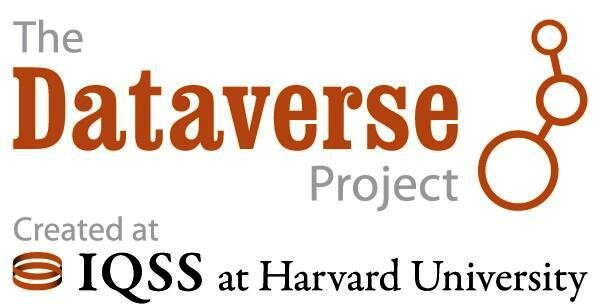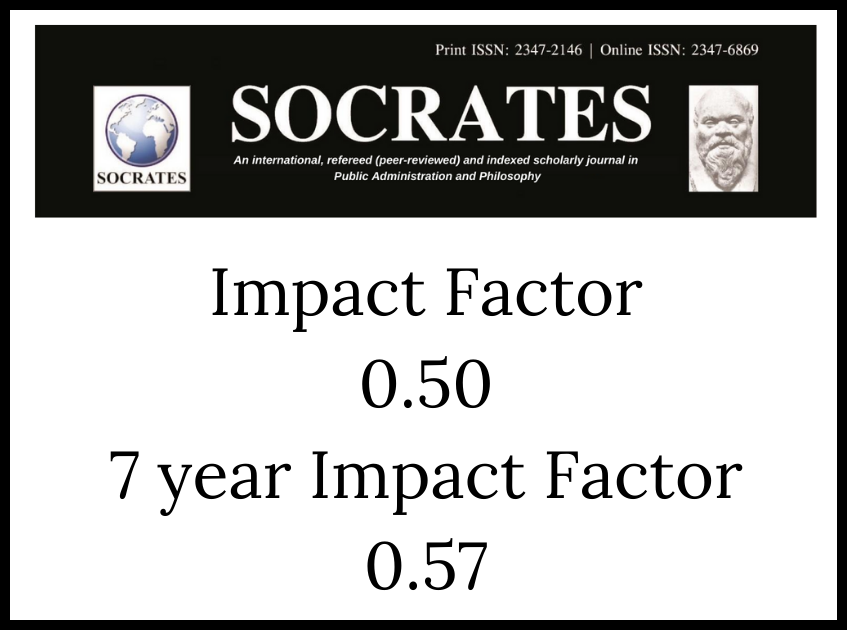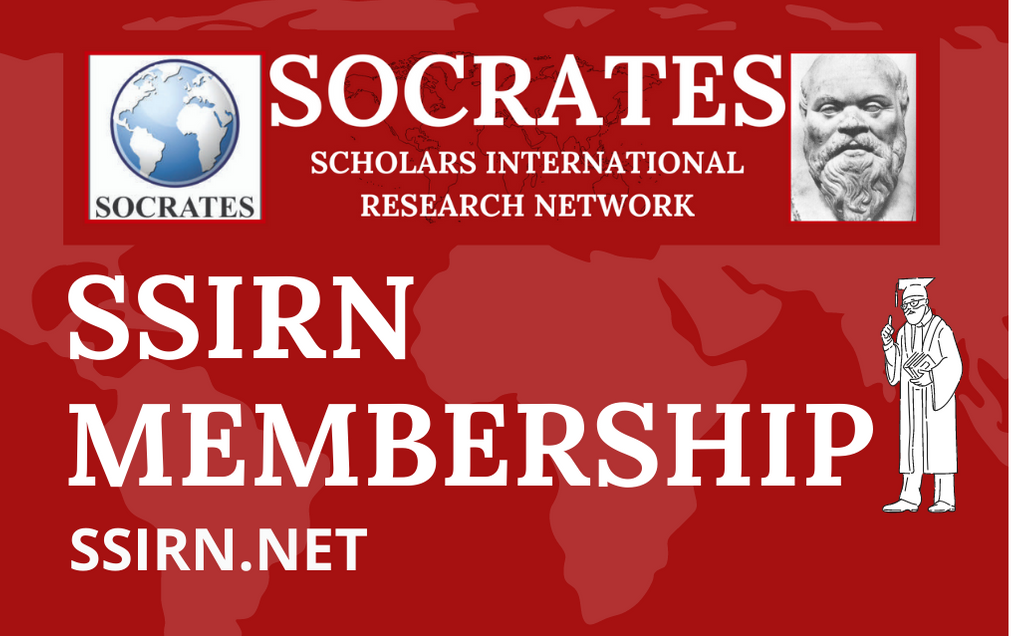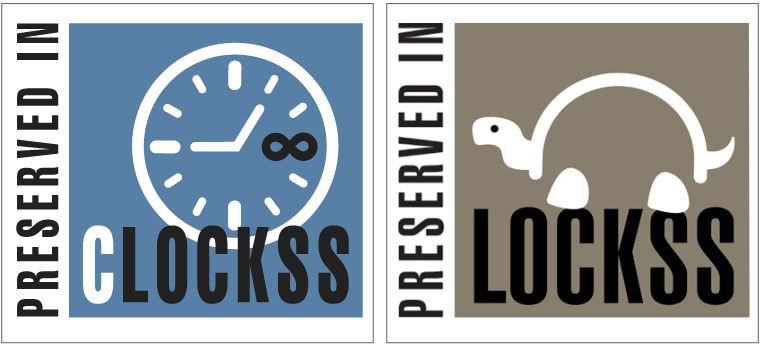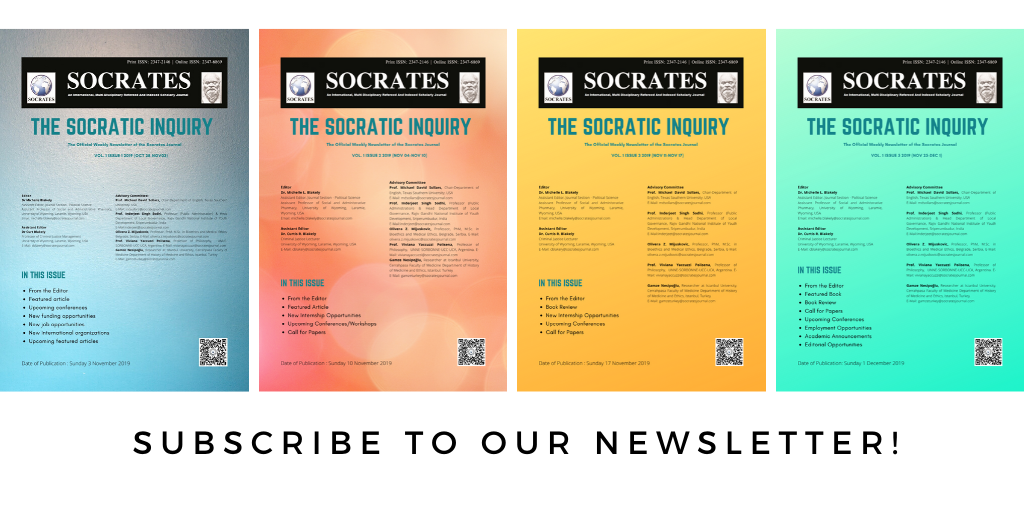Publication Ethics Statement
Professional and Ethical Standards for the SOCRATES Journal:
SOCRATES is committed to following the Principles of Transparency and Best Practices in Scholarly Publishing.
- Ethics: As implicit conditions for publishing in The SOCRATES Journal, authors are expected to adhere to basic standards of professional ethics and conduct that are common across all areas of scholarly publishing. In the publication agreement, authors warrant that their work is original and has not been published elsewhere. All parties are also expected to conform to common standards of professional respect and civility. Fortunately, in Social Science publishing, these standards are upheld in the overwhelming majority of instances. However, misunderstandings and lapses in professional conduct do occur, including instances (or accusations) of plagiarism, inadequate attribution, conflicts of interest, or personally abusive behaviour toward referees, authors, editors, or journal staff members. This document summarizes the expected standards of professional and ethical conduct, with specific application to publication in the SOCRATES journal.
- Plagiarism and Republication: Plagiarism is the "wrongful appropriation" and "stealing and publication" of another author's "language, thoughts, ideas, or expressions" and the representation of them as one's own original work. Plagiarism is considered academic dishonesty and a breach of journalistic ethics. It is subject to sanctions like penalties, suspension, and even expulsion. Recently, cases of 'extreme plagiarism' have been identified in academia. SOCRATES JOURNAL considers plagiarism a serious ethical offence. Plagiarism is the act of reproducing text or other materials from other papers without properly crediting the source. Such material is regarded as being plagiarized regardless of whether it is cited literally or has been modified or paraphrased. Plagiarism represents a serious ethical breach and may constitute a legal breach of copyright if the reproduced material has been previously published. This includes repeating text from previously published papers by the author or authors (i.e., "self-plagiarism"). Authors who wish to quote directly from other published works must fully cite the original reference and include any cited text in quotation marks. SOCRATES authors are discouraged from including such direct quotations in papers, apart from rare instances when such a quotation is appropriate for historical reasons. Figures may only be reproduced with permission and must be fully cited in the figure caption, following guidelines that are posted on the SOCRATES website.
- Attribution and Citation Practice: Papers published in SOCRATES should include citations to previously published papers that are directly relevant to the results being presented. This requirement is especially important when new ideas or results are being presented. Deliberate refusal to credit or cite prior or corroborating results, while not technically regarded as constituting plagiarism, represents a comparable breach of professional ethics and can result in the summary rejection of a manuscript. However, an unintentional failure to cite a relevant paper, while regrettable, does not necessarily imply misconduct. The rapid growth in the Social Science literature in recent years makes it difficult for an author to be aware of every relevant paper, and the inclusion of an exhaustive compendium of references is not possible. However, authors are expected to devote the same care to the correctness and appropriateness of literature citations as to the other components of the manuscript and to heed the recommendations of referees and editors to correct and augment the citations when appropriate. Responsibility for updating references after acceptance (but before publication) of a paper rests fully with the authors, but the same principles should apply.
- Conflicts of Interest: A competing interest is anything that interferes with or could reasonably be perceived as interfering with the full and objective presentation, peer review, editorial decision-making, or publication of research or non-research articles submitted to SOCRATES. Competing interests can be financial or non-financial, professional, or personal. Competing interests can arise in relation to an organization or another person. Declaring all potential competing interests is a requirement at SOCRATES with effect from 05-02-2017 and is integral to the transparent reporting of research. Failure to declare competing interests can result in the immediate rejection of a manuscript. If an undisclosed competing interest comes to light after publication, SOCRATES will take action in accordance with COPE guidelines and issue a public notification to the community, which also includes the rejection of the article from the published issue. The journal requires the submitting authors to file a Competing Interest (CI) statement with their submission. At the time of manuscript acceptance, SOCRATES journal will ask authors to confirm and, if necessary, update their disclosure statements. Based on the above disclosures made by you through the form, the form will automatically generate a disclosure statement, which you will receive via email. Authors are asked to save their statements.
- Confidentiality Guidelines: Except in cases where referees waive their anonymity with the concurrence of the editor, all peer reviews are conducted under conditions of strict confidentiality. The journals and their editors will not reveal the identity of referees or the contents of peer review correspondence to individuals outside of the respective peer review process for a minimum period of 75 years. Referees are also bound by strict confidentiality; neither the manuscripts nor the contents of referee correspondence may be shared with other parties without written permission from the editor. Strictly speaking, authors are not bound by similar confidentiality requirements (for example, they may choose to consult with co-authors and colleagues when revising a paper in response to a referee report), but public dissemination of the contents of referee reports and editorial correspondence is inappropriate. Any author who does so forfeits their rights to confidentiality protection by the journals.
- Professional Conduct and Civility: All participants in the publication process, including editors, authors, referees, and journal staff members, are expected to conform to basic standards of professional courtesy and respect the basic rules and guidelines that govern the peer review and publication process. Criticism and debate, even energetic debate, are normal parts of the intellectual process, but only when conducted with civility and professional respect for all parties. Personal attacks or verbal abuse, whether oral or written, are unacceptable under any circumstances, and the journals reserve the right to refuse submissions from individuals who repeatedly violate these guidelines or refuse to cooperate with editors and referees in the normal peer review and publication processes.
- Investigation of Misconduct Allegations: The integrity of our journals rests on the professionalism of its authors, referees, and editors. Alleged cases of unethical conduct will be investigated vigorously by the Editors-in-Chief of the journal, and if necessary, will be referred for further inquiry or action. Accusations of misconduct falling outside of the peer review or publication process may be more properly directed to the relevant institutional authorities. Editorial inquiries will be conducted with the maximum degree of confidentiality that is practical.
Page updated on October 08, 2023, at 07:00 AM. For queries, please write an email to: editorial_office@socratesjournal.com

